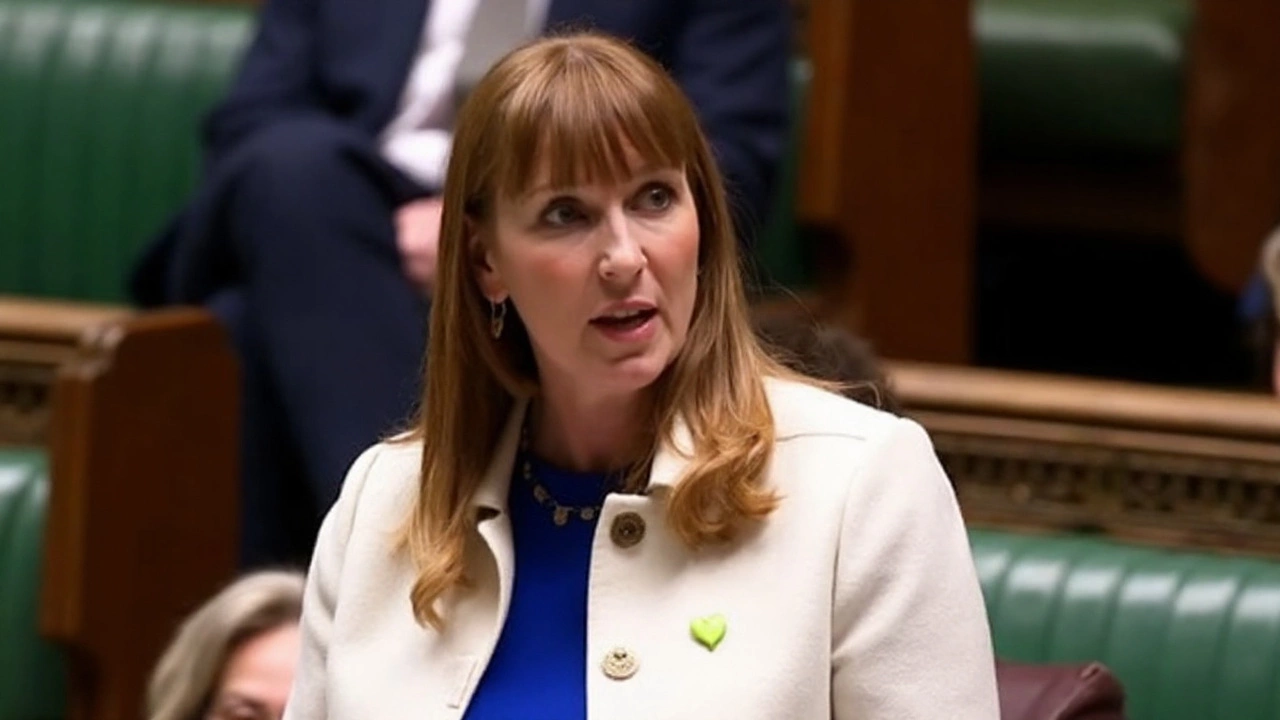What happened and why it matters
Angela Rayner has quit as UK Deputy Prime Minister after an independent ethics inquiry found she breached ministerial standards by underpaying stamp duty on an £800,000 apartment in Hove. Investigators estimated the underpayment could be around £40,000, a figure that turned a private tax error into a clear test of public trust.
Rayner was not just the deputy prime minister. She also held the housing brief and served as deputy leader of the Labour Party. That mix made the case politically explosive: a senior figure responsible for housing policy and a prominent critic of tax avoidance found to have paid the wrong rate of property tax.
The sequence was fast and unforgiving. After initially rejecting claims of wrongdoing, Rayner acknowledged on Wednesday that she had paid the lower stamp duty rate. She referred herself to the independent adviser on ministerial standards, Sir Laurie Magnus, the same day. By Friday, Magnus had delivered his report to Prime Minister Keir Starmer, concluding she had not met the ethical bar expected of ministers. Within hours, she resigned.
Why the breach? Magnus said Rayner relied on legal advice that was clearly qualified and “did not constitute expert tax advice.” Twice, the lawyers advised her to seek specialist guidance from tax professionals. She did not. In the language of Whitehall, that failure to take proper advice—especially after warnings—was decisive.
Rayner has offered context for the mistake. In an emotional TV interview, she spoke about “complex living arrangements” linked to her 2023 divorce and said her son has lifelong disabilities. She said she believed she had followed the rules, relied on advice, and was devastated by the findings. The explanations, while personal and human, could not blunt the formal judgment of the ethics process.
Political damage was inevitable. As one of Labour’s most forthright voices on tax fairness, Rayner often pressed opponents on compliance and integrity. That record made any misstep on her own taxes a glaring contradiction. For Starmer—who built his pitch around cleaning up standards in public life—the optics were even sharper. He accepted the resignation with regret, praising Rayner’s public service in a handwritten note, but letting the process speak for itself.
The fallout reaches beyond personalities. This case is now part of a wider story about standards in government: what ministers say, what they know, what they should verify before speaking publicly, and how quickly leaders act when the facts conflict with earlier denials. The takeaway inside Westminster is simple: get the details right early or prepare to pay a bigger price later.

The rules, the timeline, and what comes next
Stamp Duty Land Tax (SDLT) is charged on property purchases in England and Northern Ireland. Rates rise with the price of the home. There’s also a 3% surcharge for most second homes and buy-to-lets. If you buy a new property without replacing your main residence—or if the sale and purchase don’t overlap in a way that meets the rules—you usually pay the higher rate. Divorce and moves between homes can complicate the definition of “main residence,” but the surcharge still applies unless specific replacement criteria are met.
That replacement test trips up more people than you’d think. It turns on where you actually live, where your family lives, how you spend your time, and practical things like where your belongings are, your voter registration, and your GP. During separations, those facts can be muddled. The law makes space for real-life complexity, but HMRC expects buyers to take proper advice when the facts are messy. In Rayner’s case, the independent adviser found she was warned that her legal advice was not tax advice and should have been supplemented by a specialist opinion. It wasn’t.
What happens when you underpay stamp duty? HMRC usually seeks the shortfall, plus interest. Penalties depend on behavior. If you take reasonable care and correct the error, penalties can be reduced or avoided. If HMRC decides the error was careless or deliberate, penalties rise. Early disclosure and cooperation typically help. Rayner has said she will resolve the matter in full, which points toward quick settlement rather than a drawn-out tax fight.
The ministerial standards process runs on a different track from tax enforcement. The independent adviser investigates potential breaches of the ministerial code—covering honesty, openness, and use of best judgment—then reports to the prime minister. The PM decides on sanctions. A breach does not automatically mean resignation; it’s a political call. In this case, Starmer accepted the resignation swiftly, signaling he would not contest the adviser’s conclusions.
Here’s how the week unfolded:
- Early week: Questions intensify about whether Rayner paid the correct stamp duty rate on her Hove purchase.
- Wednesday: Rayner concedes she paid the lower rate, says she relied on legal advice, and refers herself to Sir Laurie Magnus.
- Friday: Magnus delivers his report, finding a breach of ministerial standards. Rayner resigns. Starmer, in a handwritten letter, says he is very sad to see her go and praises her achievements.
Why did ethics, not just tax, drive the outcome? Ministers are expected to check facts before making definite public claims. When earlier statements fall apart under scrutiny, confidence erodes quickly. The report concluded that Rayner should have taken specialist advice given the warnings she received. That lapse, not only the underpayment, crossed the standards line.
The resignation leaves two immediate gaps to fill. First, the deputy prime minister post—an office that often coordinates across departments and stands in at key moments. Second, the housing secretary brief, one of the most demanding jobs in the country given soaring rents, planning reform, and a chronic shortage of homes. Expect a limited reshuffle focused on continuity and delivery.
On the party side, Rayner is also Labour’s deputy leader, a position elected by party members. Government office and party office are separate. A resignation from Cabinet does not automatically change a party role, and there was no immediate statement changing that status. That distinction matters in UK politics, where figures can be outside government but still central to party strategy.
Opposition parties will push hard on consistency. Labour argued for years that standards had slipped and that ethics rules should bite. By moving quickly, Starmer has tried to hold the line he set for others: independent advice first, then decisive action. Whether voters see this as accountability or instability will depend on how the government handles the next few weeks.
For households wondering what this means for them: it’s a reminder that moving home carries tax traps. If your living arrangements are complex—separation, multiple properties, or a gap between selling and buying—standard conveyancing advice might not be enough. A short conversation with a tax specialist can spare a long headache later.
Policy doesn’t pause. The housing secretary’s agenda includes planning rules, boosting housebuilding, leasehold reform, and calming a jittery rental market. Investors and councils will want continuity. Any new housing secretary will need quick calls with developers, local leaders, and tenant groups to steady the brief and keep projects moving.
There’s also the wider trust question. Voters expect ministers to set the example on taxes, even when the law is technical and the facts are messy. Past scandals across parties—whether about expenses, tax affairs, or conflicts of interest—have taught a simple lesson: process matters. Get advice, document it, and be straight about it when questions come. When public statements have to be walked back, the political cost is usually bigger than the original mistake.
Key questions now:
- Will HMRC confirm the final amount due and any penalty, if applicable?
- How quickly will the prime minister appoint a new deputy prime minister and housing secretary?
- Does the government adjust its approach to ministerial training on financial disclosures and tax compliance?
- Does Labour’s messaging on integrity shift in tone or become even stricter to avoid repeat episodes?
One last point on the ethics process. The independent adviser role exists to give prime ministers credible, arms-length judgments. It’s not a court, but it sets a standard that is higher than “not illegal.” It asks: did the minister use good judgment, take proper advice, and act with openness? On those tests, the report says Rayner fell short. She says she regrets the error and will fix it. The rest—rebuilding trust, resetting the housing agenda, and filling a major role in government—starts now.

